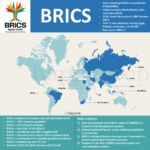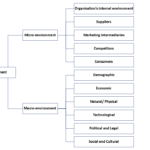Adjectives in English
Adjectives in English
Introduction
Adjectives are an important part of English grammar. They make our sentences more descriptive, colorful, and interesting. Without adjectives, our language would be dull and unclear.
For example:
- She has a house. (This sentence is correct but does not give many details.)
- She has a beautiful, big house. (Now we know more about the house!)
What is an Adjective?
An adjective is a word that describes or modifies a noun or pronoun. It gives more information about size, shape, color, number, and quality of something.
Examples of Adjectives in Sentences:
- Tall trees grow in the forest. (Tall describes trees.)
- She wore a red dress. (Red describes dress.)
- He is a kind person. (Kind describes person.)
- We had three apples. (Three describes apples.)
Types of Adjectives
Adjectives can be divided into different types based on their function in a sentence.
Proper Adjectives
Proper adjectives are formed from proper nouns and always begin with a capital letter.
Examples in Sentences:
- We love Indian food. (Derived from India)
- She bought a French perfume. (Derived from France)
- He is reading a Shakespearean play. (Derived from Shakespeare)
Descriptive Adjectives (Qualitative Adjectives)
Descriptive adjectives tell us about the quality of a noun or pronoun.
Examples in Sentences:
- The beautiful painting is in the museum.
- He has a strong voice.
- We had a delicious meal.
Quantitative Adjectives
Quantitative adjectives tell us how much or how many of something there is.
Examples in Sentences:
- I have some water. (How much? Some)
- There are five students in the class. (How many? Five)
- He ate half the cake. (How much? Half)
Demonstrative Adjectives
Demonstrative adjectives point out specific nouns and help us understand which one we are talking about.
Common Demonstrative Adjectives:
- This, That, These, Those
Examples in Sentences:
- This book is interesting. (Specific book near the speaker)
- That house is big. (Specific house far from the speaker)
- These flowers are fresh. (Plural and near)
- Those mountains are high. (Plural and far)
Possessive Adjectives
Possessive adjectives show ownership or possession.
Common Possessive Adjectives:
- My, Your, His, Her, Its, Our, Their
Examples in Sentences:
- My car is new.
- Her dress is beautiful.
- Our teacher is kind.
Interrogative Adjectives
Interrogative adjectives are used to ask questions.
Common Interrogative Adjectives:
- Which, What, Whose
Examples in Sentences:
- Which book do you like?
- What color is your bag?
- Whose pencil is this?
Distributive Adjectives
Distributive adjectives refer to individual members of a group separately.
Common Distributive Adjectives:
- Each, Every, Either, Neither
Examples in Sentences:
- Each student must bring a notebook.
- Every house on this street is decorated.
- You can take either pen.
- Neither answer is correct.
Degrees of Comparison
Adjectives can be used to compare two or more things. There are three degrees of comparison:
Degree | Usage | Examples |
Positive | Describes one noun | This house is big. |
Comparative | Compares two nouns | This house is bigger than that one. |
Superlative | Compares three or more nouns | This is the biggest house in the street. |
Examples of comparison:
Positive | Comparative | Superlative |
Tall | Taller | Tallest |
Beautiful | More beautiful | Most beautiful |
Good | Better | Best |
Quick Links
Want to read some more articles?
-
 Shanghai Cooperation Organization (SCO): Origin, Members, Facts, etc for UPSC and other exams
Shanghai Cooperation Organization (SCO): Origin, Members, Facts, etc for UPSC and other exams -
 BRICS: Origin, members and others for UPSC, PSC & other exams
BRICS: Origin, members and others for UPSC, PSC & other exams -
 BIMSTEC for UPSC: Origin, Members & More
BIMSTEC for UPSC: Origin, Members & More -
 General Science for Competitive exams: UPSC, PSC, APFC, EO-AO, SSC, etc
General Science for Competitive exams: UPSC, PSC, APFC, EO-AO, SSC, etc -
 THE TRADE UNIONS ACT, 1926 for UPSC EPFO APFC/EO-AO, ALC, and Other exams
THE TRADE UNIONS ACT, 1926 for UPSC EPFO APFC/EO-AO, ALC, and Other exams -
 Understanding Macroenvironment: Marketing Environment in Principles of Marketing
Understanding Macroenvironment: Marketing Environment in Principles of Marketing -
 Understanding Microenvironment: Marketing Environment in Principles of Marketing
Understanding Microenvironment: Marketing Environment in Principles of Marketing -
Interjections in English
-
Conjunctions in English
Recruitment notifications update!
-
Recruitment 2025: Recruitment for Teaching Staff in The School of Planning and Architecture, New Delhi - Vacancy, Posts, Grade Pay, etc
-
Recruitment 2025: Vacancies in Inter-University Centre for Astronomy and Astrophysics (IUCAA)
-
Recruitment 2025: Recruitment on Deputation basis in National Anti Doping Agency (NADA)
-
Recruitment 2025: Various vacancies in Artificial Limbs Manufacturing Corporation of India (ALIMCO)
-
Recruitment 2025: Various vacancies in Land Ports Authority of India
Copyright© 2024 | All rights reserved | Made in India